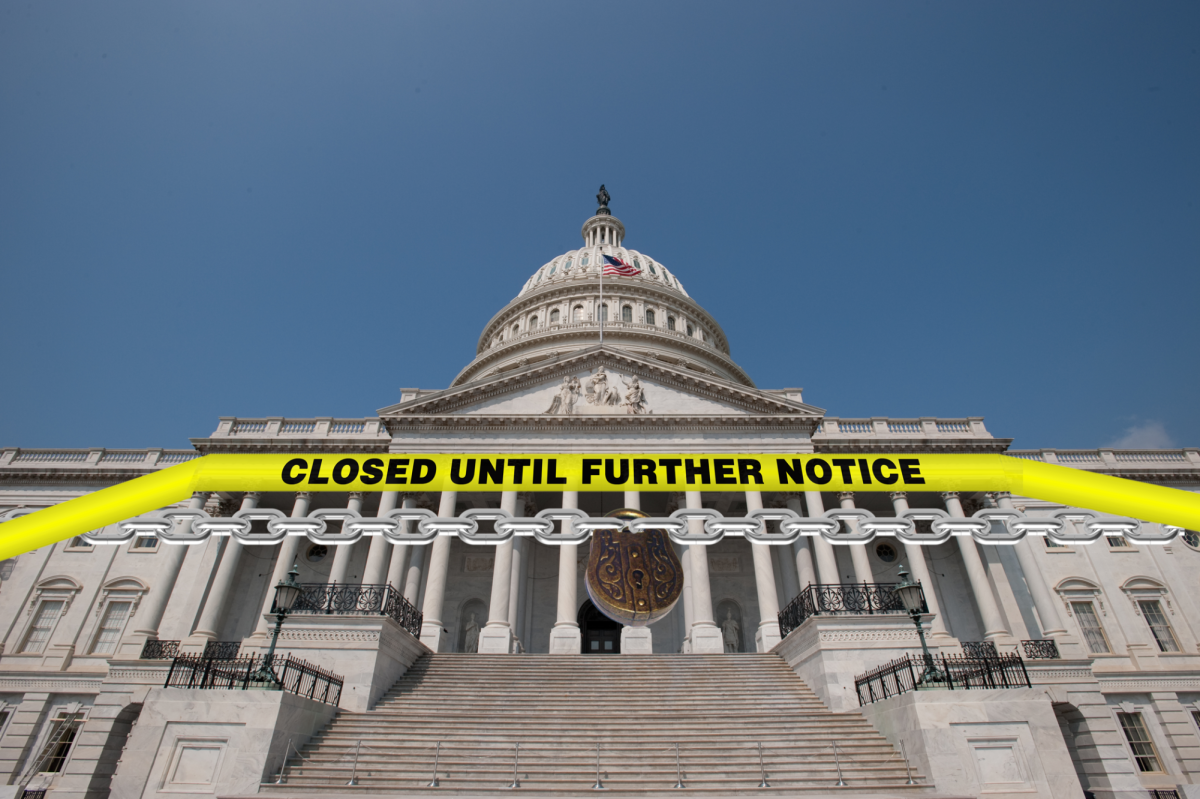On Sept. 29, House Speaker Kevin McCarthy avoided a government shutdown by passing a spending bill that would keep the government open until mid-November. Even though that is a win for everyone, the threat of a shutdown should have never been as imminent.
A government shutdown occurs when Congress is unable to pass spending bills that will allow federal agencies to function. As a result, Americans employed by federal institutions such as the IRS, military and TSA will not be paid, halting operations altogether.
According to the Wall Street Journal, a shutdown would also cost 0.2 percentage points off annual gross domestic product growth every week.
To avoid a shutdown, successful spending bills must be passed by the end of the fiscal year on Sept. 30. This year, the threat of a shutdown was more pressing as the newly-elected McCarthy struggled between doing his job and appeasing other representatives.
During his election, which took four days and 15 rounds of voting, McCarthy had to make concessions with far-right Republicans, who would otherwise continue resisting his speakership.
Some of the concessions include putting more conservatives on key committees, not raising the debt ceiling and allowing any one member to initiate a vote to remove McCarthy as speaker at any point, NPR reported.
Shortly after the vote, representatives were worried that McCarthy bit off more than he could chew. For example, Rep. Steny Hoyer said the deals give too much power to a minority of Republicans, as reported by The Hill.
In Hoyer’s opinion, McCarthy’s concessions “a faction of his caucus that has been almost uniformly obstructionist, more authority than they ought to have.”
The concessions mainly were made with members collectively known as the Freedom Caucus, including conservative representatives like Matt Gaetz, Lauren Boebert, Marjorie Taylor Greene and Andy Biggs.
The Freedom Caucus serves as McCarthy’s biggest opposition. It demands the inclusion of a bill that would build more walls at the Southern border, restrict asylum for those seeking to remain in the U.S. and the opposition of additional humanitarian support for Ukraine.
The Republican House holds just a five-seat majority and the concessions made by McCarthy allowed for a lot of leverage over the speaker. As a result, McCarthy found himself choosing between doing his job to keep the government open or reneging on the promises made and potentially losing his job.
The Washington Post reported that at least one of McCarthy’s proposals failed to pass the House because of resistance from not only the Democrats but also members of his own party.
President Joe Biden commented, “McCarthy had made a terrible bargain with conservative Republicans.”
“In order to keep the speakership, [McCarthy’s] willing to do things that I think he knows are inconsistent with the constitutional processes,” Biden added.
Over the past week, McCarthy has searched for ways to avoid a shutdown but his efforts have been met with opposition. Notably, Gaetz claimed he and his colleagues were simply fighting for fiscal responsibility and wished to see the promises made by the speaker fulfilled.
However, fighting for fiscal responsibility should not come at the price of shutting down the entire government.
McCarthy found allies in his democratic colleagues, presenting a bill that gave in to many Democratic demands and omitting requests sought by Republicans, notably the border-security measures and foreign aid.
The spending bill passed 335 to 91 in the House and 88 to 9 in the Senate, avoiding a government shutdown just hours before it was set to occur.
In response, Gaetz threatened to dismiss McCarthy, taking the Speaker up on one of the concessions. Although the Freedom Caucus were trying to prove a point, moving to oust the Speaker after a crisis was averted comes off as childish, vindictive and petty.
“There has to be an adult in the room. If [Gaetz] is upset because he tried to push us in a shutdown and I made sure the government didn’t shut down, then let’s have that fight,” McCarthy told CBS.
McCarthy was ousted on Oct. 3 due to unfilled promises to Republicans, according to AP news.
He lasted less than a year as a house speaker, an unprecedented move. Until Republicans elect a new speaker, operations will stop. The concessions made to obtain the position continued to come in between McCarthy and his ability to properly do his job.
As the government stays open, there is no telling how the next conflict will challenge the speaker and more importantly its effects on American citizens.







